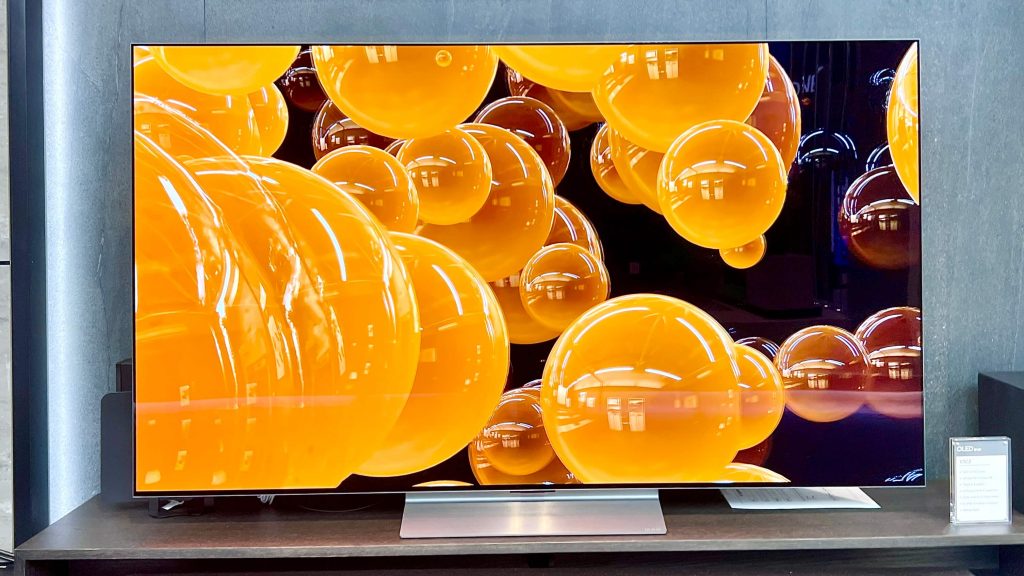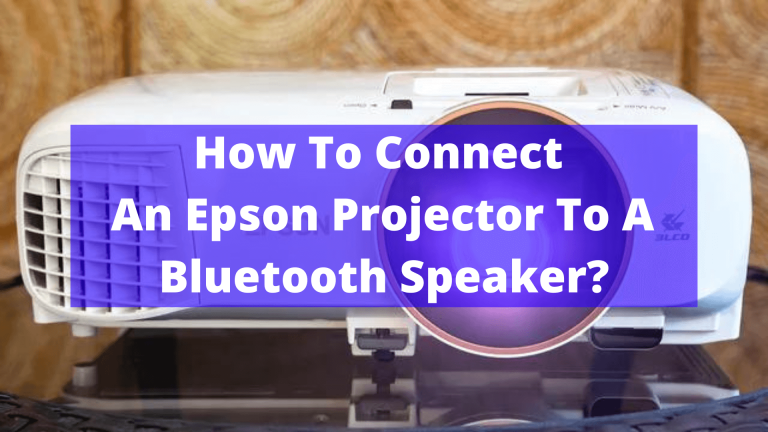77 OLED vs Projector In %currentdate%
When choosing a display for your home theater, you have two main options: an OLED TV or a projector. OLED TVs offer advantages over projectors, including better image quality, wider viewing angles, and thinner designs.
However, projectors have a few advantages, including lower prices, longer lifespans, and the ability to project a much larger image.

Is an OLED better than a projector?
There are a few different ways to produce an image regarding display technology. Two popular methods are an OLED (organic light-emitting diode) or a projector.
So, which one is better?
Generally speaking, OLEDs offer a better picture quality than projectors. This is because they can produce a higher brightness and resolution than projectors. Additionally, OLEDs don’t suffer from the “screen door” effect, which is when the individual pixels of a projector are visible.
There are a few drawbacks to OLEDs, however. They tend to be more expensive than projectors and have a shorter lifespan.
Do OLED projectors exist?
Yes, OLED projectors exist. Projectors with the picture quality of OLED TVs are available. OLED projectors use organic light-emitting diodes made of carbon-based materials that emit light when an electric current is passed through them.
This is different from traditional LCD projectors, which use a backlight to illuminate the pixels on the screen. OLED projectors can produce more vivid and lifelike images than LCD projectors and have a wider color gamut and higher contrast ratio.
Is Qled as good as OLED?
QLED is a newer technology that offers several advantages over OLED.
- First, QLEDs can achieve higher brightness, making them better suited for use in well-lit rooms or outdoors.
- Second, QLEDs have a longer lifespan than OLEDs, meaning they will last longer before needing to be replaced.
- Third, QLEDs are available in larger screen sizes, so you can get a giant TV or monitor if you want.
- Fourth, QLEDs typically cost less than OLEDs, making them a more budget-friendly option.
- Finally, QLEDs do not suffer burn-in, so you won’t have to worry about permanent image retention.
Advantages Of Projectors

There are many advantages to using a projector over other forms of display, such as TVs or monitors.
- One advantage is that the projection size can be customized to fit the available space. Projectors can also create much larger images than other displays, making them ideal for use in large venues such as auditoriums or conference halls.
- Another advantage of projectors is that they are easier on the eyes than other displays, making them more comfortable to use for extended periods.
- Additionally, projectors are compact and portable, making them easy to transport and set up.
- Finally, projectors offer great value for the price, making them a cost-effective option for many users.
Disadvantages of Projectors
There are several disadvantages to using projectors.
- Firstly, they often require a dark room to function correctly. This can be a problem if you try using the projector in a public space.
- Secondly, they require regular maintenance to keep them functioning correctly. This can be a hassle for users who do not want to worry about their projectors constantly.
- Finally, most projectors need a separate audio system to function correctly. This can be an additional expense for users who are not prepared for it.
Advantages of OLEDs

OLEDs offer several advantages over traditional LCDs. Perhaps the most significant is that OLEDs can be designed to be much thinner, lighter, and more flexible than LCDs. This makes them ideal for use in a wide variety of applications where space is at a premium, such as mobile devices and wearables.
OLEDs also consume less power than LCDs and offer better contrast, higher brightness, fuller viewing angles, and a more comprehensive color range. Additionally, OLEDs can refresh much faster than LCDs, making them ideal for use in high-speed applications.
Disadvantages of OLEDs
Several disadvantages of OLEDs must be considered when selecting a display type for a particular application.
- One disadvantage is that their lifetime is shorter than other display types, such as LCDs. This shorter lifetime is because OLEDs are susceptible to water damage and thus can be easily damaged by water.
- OLEDs are also more expensive than other display types, making them less cost-effective for many applications.
Frequently Asked Question
Is OLED better for eyes?
It is often said that OLED displays are better for your eyesight. This is because they do not use backlighting, which can cause eye strain. Instead, they rely on organic light-emitting diodes, which emit their light. This means they can produce a more natural light, which is easier on the eyes. Additionally, OLED displays tend to have a higher contrast ratio, which makes them easier to read.
Is OLED better than 4k?
OLED technology has several advantages over 4k UHD LED TVs, chief among them being a significantly broader and better viewing angle. OLED TVs also have a faster response time, meaning they can more accurately display fast-moving images without blurring. OLED TVs are more energy-efficient than 4k UHD LED TVs, meaning they use less power and produce less heat.
Conclusion:
Ultimately, it comes down to what you need and wants from your viewing experience. An OLED TV is probably the way to go if you want the best image quality.
However, a projector is probably a better option if you’re looking for a more immersive experience or a way to watch movies and TV shows on the big screen without breaking the bank.







